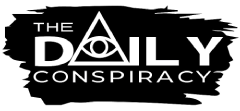In a 2017 interview with 60 Minutes, Robert Bigelow asserted the existence of an extraterrestrial (ET) presence on Earth, backed by his extensive financial investment in UFO research. As the founder of Bigelow Aerospace, a company contracted by NASA, Bigelow claimed to have spent more on UFO investigations than anyone else in the United States. His contributions have fueled a continuous stream of pseudoscience related to UFOs, delving into various phenomena such as crop circles, cattle mutilations, and alien abductions.
Bigelow’s influence extends beyond personal beliefs; it has contributed to the current political and public discourse on UFOs. Discussions about a supposed massive UFO cover-up by the U.S. government, proposed legislation to uncover classified information, and accusations of a cover-up by military and intelligence agencies have become part of the mainstream narrative. Representative Tim Burchett of Tennessee even alleged a “cover-up” of UFO reports.
Wealthy individuals like Bigelow have played a role in shaping public opinion on fringe science. Laurance Rockefeller, a prominent UFO benefactor in the 1990s, funded various UFO-related activities that kept the topic in public discourse. The scientific community has criticized such ventures, viewing them as akin to the search for Bigfoot or Atlantis.
In recent years, Harvard astrophysicist Avi Loeb’s pursuit of evidence of extraterrestrial life off the coast of Papua New Guinea, funded by cryptocurrency mogul Charles Hoskinson, has garnered significant media coverage. Loeb’s polarizing claims and unconventional approach to fringe science have further blurred the lines between legitimate scientific inquiry and sensationalism.
The influence of wealthy individuals on fringe science is not new. Institutions like the Massachusetts Institute of Technology and the University of Nevada have, at times, lent credibility to pseudoscientific endeavors. Bigelow’s funding extended to the study of psychic phenomena at the University of Nevada, raising questions about the intersection of wealth, academia, and unconventional scientific pursuits.
Fringe science often finds its way into government programs, as demonstrated by the Department of Defense allocating $22 million to Bigelow from 2008 to 2011 to investigate UFOs, werewolves, and poltergeists on a Utah ranch. The recent surge in UFO-related claims and government investigations, including Congressional hearings and Pentagon task forces, may have roots in the fringe science funded by individuals like Bigelow.
In conclusion, the influence of wealthy individuals on fringe science has not only shaped public discourse but has also found its way into government programs and investigations. The line between legitimate scientific inquiry and sensationalism is often blurred, raising questions about the impact of financial backing on the pursuit of unconventional scientific topics.

